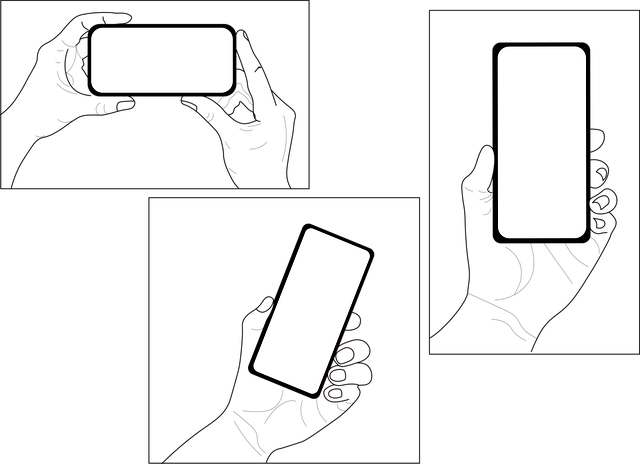The Telephone Consumer Protection Act (TCPA) is a crucial federal legislation in the DC region that safeguards consumers from intrusive phone calls and spam. As virtual tourism flourishes, businesses must navigate TCPA regulations to avoid legal pitfalls. This includes obtaining explicit user consent for automated dialing or text messaging, maintaining detailed records of customer interactions, and regularly reviewing privacy policies with expert guidance from a TCPA Lawyer DC or TCPA Attorney DC. Compliance ensures customer satisfaction, minimizes penalties from spam call law firms District of Columbia, and protects businesses in the dynamic digital tourism sector. Engaging qualified legal counsel specializing in TCPA and spam call laws is essential for navigating these complex regulations with confidence.
As virtual tourism flourishes in the District of Columbia, businesses must navigate a complex legal landscape to ensure compliance with the Telephone Consumer Protection Act (TCPA). This comprehensive guide explores the intricacies of the TCPA as it pertains to DC’s virtual tourism experiences. From understanding the law and identifying potential violations to best practices for compliance and managing litigation, this article equips business owners and operators with essential knowledge to protect their operations and avoid costly legal pitfalls. Discover expert tips on selecting a specialized TCPA lawyer in DAC to safeguard your virtual tourism ventures.
Understanding the TCPA and Its Relevance to Virtual Tourism in DC
The Telephone Consumer Protection Act (TCPA) is a federal law designed to protect consumers from unwanted and harassing phone calls, specifically from automated or prerecorded messages. In the context of virtual tourism in Washington D.C., understanding the TCPA’s implications is crucial for businesses aiming to offer immersive digital experiences. As more tourists explore the city through virtual tours and interactive simulations, companies must ensure compliance with this stringent privacy legislation.
DC’s vibrant tourism industry includes numerous virtual experiences that cater to both local residents and visitors. However, engaging in these activities comes with legal considerations, especially regarding consumer consent and marketing practices. A TCPA lawyer in DC or a spam call law firm specializing in the region can provide guidance on navigating these complex rules. Businesses must be vigilant in obtaining proper authorization from users before implementing automated phone systems to avoid potential legal repercussions and ensure a seamless experience for their virtual tourists.
Navigating Virtual Experiences: Identifying Potential TCPA Violations
Navigating Virtual Experiences: Identifying Potential TCPA Violations
As virtual tourism experiences gain popularity in the District of Columbia, it’s crucial for businesses to understand and comply with the Telephone Consumer Protection Act (TCPA). This federal law was designed to prevent spam calls and protect consumers from unwanted marketing. When creating immersive digital tours, companies must be vigilant about adhering to TCPA guidelines to avoid legal repercussions. Engaging in practices such as automated dialing or text messaging without prior consent can lead to significant penalties.
A TCPA lawyer in DC or a reputable spam call law firm can provide valuable insights into navigating these regulations. Businesses should ensure they obtain explicit consent from users before contacting them virtually, document marketing efforts, and maintain accurate records of consumer opt-out requests. By adhering to these principles, virtual tourism businesses can offer engaging experiences while respecting consumer privacy and staying within the legal framework set by the TCPA.
Best Practices for DC Businesses: Compliance Strategies for Virtual Tourism
To ensure compliance with the TCPA (Telemarketing Consumer Protection Act) in the District of Columbia, businesses offering virtual tourism experiences should adopt best practices designed to safeguard against potential legal pitfalls. First and foremost, implement robust systems for obtaining explicit consent from participants before engaging in any form of telemarketing or automated calling. This includes clear opt-in mechanisms during booking processes, with options for individuals to easily withdraw consent. Secondly, maintain meticulous records of customer interactions, including call logs, opt-in/opt-out statuses, and data on how participants engage with virtual tours.
Regularly reviewing and updating privacy policies to align with TCPA regulations is crucial. Engage the services of a reputable TCPA lawyer in DC or consult with a TCPA attorney to ensure your practices meet legal standards. Avoiding spam calls is paramount; employ technology that identifies and blocks automated dialing systems, and train staff on responsible marketing practices. By adhering to these strategies, virtual tourism businesses in the District of Columbia can enhance customer satisfaction while minimizing the risk of violations under the TCPA, avoiding potential penalties from a spam call law firm DC.
When Calls Go Wrong: Dealing with TCPA Litigation in the District of Columbia
In the dynamic landscape of virtual tourism in the District of Columbia, understanding and adhering to the Telemarketing Consumer Protection Act (TCPA) is paramount. When calls go wrong—whether due to misinformed practices or malicious intent—it can lead to costly litigation. The District of Columbia has strict laws against spam calls, with significant penalties for violators. Engaging a qualified TCPA lawyer in DC becomes crucial to navigate these legal waters and protect your business from substantial fines and reputational damage.
With the rise of virtual experiences, many tourism-related businesses inadvertently fall into grey areas of the TCPA. A single misstep can invite legal challenges from affected consumers. The best defense is proactive compliance. Hiring a TCPA attorney in DC ensures your marketing strategies align with the law, minimizing risks and ensuring fair practices. These legal experts can guide you through the intricate regulations, helping to craft effective communication protocols that respect consumer privacy while promoting legitimate business interactions.
Selecting Legal Counsel: Finding a TCPA Lawyer Specialized in DC's Virtual Space
When navigating the complex landscape of TCPA compliance in the rapidly evolving world of virtual tourism experiences in D.C., selecting the right legal counsel is paramount. You’ll want to partner with a TCPA Lawyer DC who understands not just the letter of the law but also its application within the unique digital environment of virtual tours. Look for attorneys specializing in navigating the spam call laws specific to the District of Columbia, ensuring they have experience dealing with cases involving TCPA District of Columbia.
A competent TCPA attorney DC will be well-versed in mitigating risks associated with consumer calls, text messages, and other forms of digital communication. They should be able to guide your business on best practices for obtaining informed consent, managing opt-out requests, and avoiding potential violations that could lead to significant fines or reputational damage. Engaging a spam call law firm District of Columbia that prioritizes your virtual tourism experience’s legal integrity can help ensure compliance, protect your brand, and enable you to confidently expand into this dynamic market.






